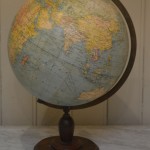
Yesterday I gave it a try to explain to a lokal hotel keeper here in Rishikesh why people ‘have a guru’.
We were having a conversation and this question came up from him.
I find quite often that we, let’s say the Western seekers, know way more about this enlightenment stuff than many Indians.
On the one hand this is surprizing. On the other hand not quite:
The Western seekers are on average well and highly educated and belong to the happy few out of the unhappy humanity that are sometimes already ‘forever’ gathering knowledge on how to improve life.
And the Indians we meet are either the so called gurus or the people that serve us: guesthouse owners and their staff, the whole lot of the horeca, cafe’s, restaurants, chai shops. Clothing shops, traveling agents. And all the others that earn a living on our temporary presence. In short: the catering and hospitality business.
My conversation partner this time, let’s call him Dev, did know about gurus but did not get what people are going there for.
I give a display of my answer:
Guru in your country just means teacher. Musicians have a guru that teached them (the perfectioning of) their musical skills.
In my country, in the Western world, guru has the meaning of a specific kind of teacher, the one that teaches about life and living. About how the world, the cosmos is and how it works and even how it came and comes about. And about the consciousness in and of all of this. And Dev, your country is the source of much wisdom and of many many scriptures on this subjects.
Adding now: this wisdom has made its way to the West, for instance by Swami Vivekananda, who also kind of prepared India for its later independence.
See: https://en.m.wikipedia.org/wiki/Swami_Vivekananda
But why do people go to gurus, you asked.
How to explain?
You might say that we humans are in a way confused about life.
The wise, the Rishis, they all say that ‘all is one’.
And that means, literally, that all is one: ‘One without a second’.
This is something that we even can not imagine. Because then you would already have two apparently separate things: the person that imagines and the imagined imagination.
We just do not experience the world as one. (Except for instance in deep sleep).
We experience our world as being split: here is where I am, and over there is the world. Here I am. You are over there.
Because of this we feel separated. We feel lonely.
And thus we look for a solution for this painfull situation.
And we look for the solution outside of us.
In short: we are not really happy.
But we want to be happy and it has to be solved by something or someone out there.
For instance, you are married. And you expect your wife to make you happy.
And although she might succeed once in a while for a few moments, in the long run she will fail.
And then, easy way out, we blame her for us not being happy.
And we might even start beating her up for not making us happy.
And this is happening a lot as you know.
This is just one example of how we can end up being unhappy together.
It happens in many many ways.
And as long as we are convinced that the solution for our feeling disconnected is somewhere out there, we are fucked. (Excusez le mot).
And the possibilities to avoid feeling what is actually going on are many. There is a plethora of escape routes. From workaholic to alcoholic and everything in between and around it.
Dev, as you might have guessed by now: the solution is not out there.
The solution is in here.
People go to gurus, to spiritual teachers, to learn about the inner solution.
But that’s another story.
Do you want to hear?







